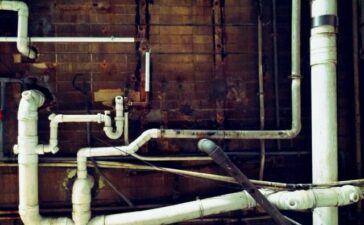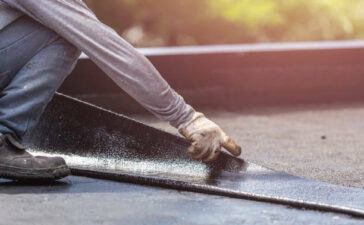As the summer gets increasingly warmer, the need for ACs also rises. Many homes have their ACs running continuously and homes with HVAC systems also have the units running around the clock to keep the home comfortable.
Having these systems run for so long means that the machinery undergoes a lot of stress and all the different components in the appliance are at a high risk of breaking, failing, or being damaged. To ensure you don’t have an uncomfortable summer, here are a few things you can check to make sure your AC is running the way it should.
Check for Continuous Running
When you have your AC turned on, the fan is going to be running continuously. This is the fan that is taking chilled air from the evaporator and moving it into the house. However, on the backend, there is also the compressor of the system which is responsible for compressing refrigerant gas and preparing it for the evaporator to use. The compressor is not supposed to function continuously.
Once it has compressed enough gas for the evaporator, it should stop running. If you notice that the compressor is continuously running, this could be a sign of gas leakage in the system or an electrical problem. Have this inspected by a professional so you can diagnose what the cause is.
Check Airflow
Another common problem that people face is that the AC isn’t providing sufficient airflow into the room. Even though the AC is on, and the air coming out of it is cold, the amount of air is very low, and even at full power, you can barely feel the air blowing through the AC. According to the team at AC repair Santa Clarita, this is usually a sign of a blockage in the system or it could be a problem with the fan behind the blower. If it is a blockage, it will only require cleaning of the inlet and outlet of the AC.
If it is a fan-related problem, then it might either be repairable or the fan may need to be replaced entirely. In some cases, it can also be a problem with the machinery that is used to spin the fan such as the fan motor or the shaft that the fan is installed on.
Check for Noise
When the AC is in operation there are a number of parts that are functioning. Generally, this should not create too much noise. You might hear some noise fluctuations when you switch the AC on, but this should die down soon and later it should be close to being soundless. In some cases, the AC can make a lot of noise and if this is the case, you should definitely have this inspected. Since there are so many moving components, this can be caused by a variety of factors.
The most common problems are belt-related issues. When the belt keeps skipping and slipping on the pulley, it makes loud shrieking noises and can even cause problems in the airflow and the cooling function of the AC. This can easily be fixed by replacing the belt or by adjusting the pulley to make the belt a bit tauter.
Check Amperage
In some cases, the AC unit is installed quite some distance away from the indoor vent, so you might not be able to hear the system running continuously. Another way to check whether the system is drawing full power is to check the amperage at the power socket. Using a simple multimeter, you can check the amount of current that the appliance is drawing.
If it is close to full power, something like 5 amps or more, then you can be sure that the compressor is running. If it is a small value, anything that is below 2 amps, you can be sure that this is just the fan running. The AC should not be continuously drawing full power from the socket. If this is the case with your unit, have it inspected by a professional to uncover the root cause.
Smell
A lot of people have an issue with the AC where the air coming from it starts to smell bad. Again, there can be multiple reasons for this issue. The most common cause is that the AC filters are wet or have developed mold and fungus and that is causing that bad smell in the air. A simple solution is to take out the AC filters and give them a good wash. If it persists then you will need to take the unit apart.
ACs use a lot of power and are very high voltage systems. If you are not a qualified electrician, then do not attempt to make any major repairs yourself. Changing out the filters and cleaning the exterior of the unit is fine, but do not attempt to conduct electrical repairs to the unit. Get in touch with a professional who will help you out.






